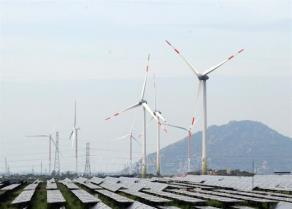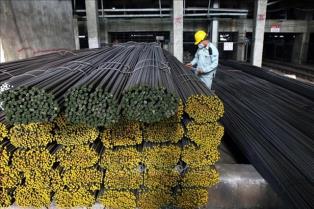Most of the loan will continue to be used for balancing the central budget, in the context of increasing demand for public investment, digital transformation and green transformation.

HÀ NỘI — Việt Nam is set to up its Government borrowing by over VNĐ139 trillion (US$5.42 billion) in 2025, marking a sharp 20.6 per cent increase from the 2024 plan to nearly VNĐ815.24 trillion, according to a recent Government decision.
Most of this borrowing will be directed towards balancing the central budget amid rising demands for public investment, digital innovation and green transformation efforts.
Under Decision No 1940/QĐ-TTg, loans allocated to budget balancing are projected to climb 21.9 per cent to VNĐ804.24 trillion. The amount borrowed to cover the budget deficit will rise 18.8 per cent, from VNĐ372.9 trillion to VNĐ443.1 trillion, while funds set aside for principal repayments are expected to jump 25.8 per cent to VNĐ361.14 trillion.
Conversely, loans for relending will fall sharply by 31.8 per cent, dropping from VNĐ16.12 trillion to VNĐ10.99 trillion.
Government debt repayments in 2025 are capped at nearly VNĐ506.95 trillion, an increase of almost 11.7 per cent or nearly VNĐ53 trillion compared to 2024. Direct debt repayments will surge 18.4 per cent to VNĐ468.54 trillion, while loan repayments are forecast to decline by 33.9 per cent to VNĐ38.41 trillion.
This borrowing strategy reflects Việt Nam's balancing act between fiscal responsibility and ambitious investment goals in a changing economic landscape.
Regarding the capital structure, the Government will continue to flexibly use tools such as issuing bonds, borrowing ODA, foreign preferential loans and other legal financial sources when necessary.
According to the Government, the principles of ensuring public debt safety are strictly maintained. No new guarantee limit is granted to enterprises while bond issuance guarantees are only applied to the Social Policy Bank at a controlled level.
According to the new decision, for the 2025-27 period, the Government’s total borrowing and debt repayment will be significantly higher than the plan for the 2024-26 period.
Accordingly, the total borrowing of the Government in the three years from 2025 to 2027 will be at a maximum of nearly VNĐ2.22 quadrillion, VNĐ355.8 trillion or 19.1 per cent higher than the plan for the 2024-26 period.
Of which, the loan serving the central budget in the 2025-27 period will also increase sharply by 20.1 per cent, from nearly VNĐ1.82 quadrillion under the plan for the 2024-26 period to more than VNĐ2.18 quadrillion. This shows a trend of expanding the scale of budget expenditure, especially in the context of needing large capital to promote public investment, infrastructure and implement green transformation and digital transformation goals.
In contrast, Government loans for relending to enterprises will decrease by 20.3 per cent, from VNĐ43.9 trillion to VNĐ35 trillion.
Regarding debt repayment obligations, the total debt repayment of the Government in the 2025-27 period is more than VNĐ1.34 quadrillion, an increase of 22.1 per cent compared to the 2024-26 period. Of which, the direct debt repayment of the Government will increase by 25.6 per cent, from VNĐ976.4 trillion to more than VNĐ1.22 quadrillion.
The increase in borrowing and debt repayment in the 2025-27 period will also be accompanied by solutions to strengthen risk control, restructure the government bond portfolio and effectively utilise foreign capital. The Government will also continue to maintain the policy of not issuing new guarantees to enterprises and only implementing controlled guarantees for the Social Policy Bank.
With a significant increase in borrowing and debt repayment, the 2025-27 period will be a key period for Việt Nam to raise capital to serve growth along with commitments to ensure public financial safety and improve the national credit rating. — BIZHUB/VNS
- Tags
- economic growth





